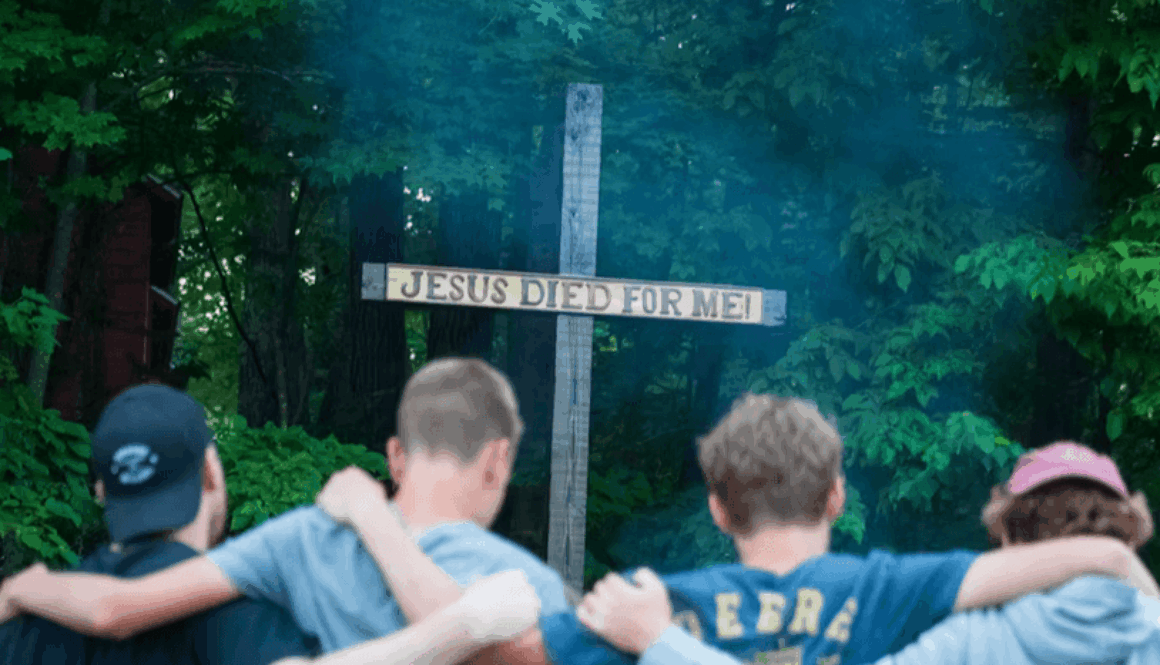La Luz de Dios Abre Puertas
Una de mis oraciones favoritas es el Salmo 23. Sus palabras me han acompañado en los momentos de alegría como en los de lucha. Las susurro cada noche antes de dormir, y a veces también durante el día, cuando necesito fortaleza. Mi hija Christy también lo aprendió de memoria, y solíamos recitarlo juntos en el carro, camino al colegio o a cualquier diligencia.
Comienza así:
“El Señor es mi pastor, nada me faltará.
En verdes pastos me hace descansar;
junto a aguas de reposo me conduce;
conforta mi alma.
Aunque ande en valle de sombra de muerte,
no temeré mal alguno,
porque Tú estás conmigo;
Tu vara y Tu cayado me infunden aliento.”
Hay algo profundamente reconfortante en esas palabras. Cada vez que las rezo, siento que mi confianza en Jesús regresa. Porque no importa cuán perdido me sienta, como un barco a la deriva en medio de una tormenta, Él siempre está ahí. Mi tarea no es controlar las olas, sino dejar de resistirme a Su mano. Cuando me entrego y susurro: “Jesús, en Ti confío”, la paz comienza a reemplazar el miedo.
Tal como dice el Salmo 23, cuando atravesamos valles oscuros, el bastón del Pastor guía nuestros pasos con seguridad a través de las sombras.
He pasado por muchos valles en mi vida, momentos en que el camino parecía completamente bloqueado. Hubo frustraciones profesionales, conflictos con colegas, y pruebas familiares que pusieron a prueba mi resistencia. Pero nada se compara con el momento en que mi hija Christy fue diagnosticada con cáncer a los seis años. Ese fue mi valle más oscuro.
Como padre, tuve que cargar una cruz muy pesada: mantener viva la fe, sostener la unión familiar y ayudar a Christy a librar su batalla con valentía. Durante aquellas noches de lágrimas y confusión, aprendí que la vida puede cambiar de dirección en un instante. Un día fluye con calma, y al siguiente se convierte en un laberinto de dolor, sueños rotos e incertidumbre.
Y, sin embargo, en medio de cada laberinto de sufrimiento, siempre hay una puerta, una salida. Esa puerta es la fe.
Jesús nunca irrumpe a la fuerza en nuestras vidas. Él espera, como un caballero, a que le abramos el corazón. Cuando confiamos plenamente en Él, los milagros comienzan a revelarse. Pero ¿cómo podemos ver la luz si mantenemos los ojos fijos en la oscuridad? Cuando nos enfocamos en nuestros temores, nos volvemos ciegos al suave resplandor de la presencia de Dios. Las sombras del dolor, la ignorancia, el pecado, la desesperanza; solo se disipan cuando levantamos la mirada hacia Su luz.
La Biblia está llena de promesas para quienes deciden caminar hacia esa luz:
Isaías 9:2 – “El pueblo que andaba en tinieblas vio gran luz.”
Salmo 27:1 – “El Señor es mi luz y mi salvación; ¿de quién temeré?”
Isaías 60:1 – “Levántate, resplandece, porque ha venido tu luz, y la gloria del Señor ha nacido sobre ti.”
Juan 8:12 – “Yo soy la luz del mundo; el que me sigue no andará en tinieblas.”
Cada versículo nos recuerda que la luz y la oscuridad no pueden coexistir. Cuando la luz de Dios entra, el miedo debe salir.
La fe nos transforma. En Efesios 5:8 leemos: “Porque en otro tiempo erais tinieblas, mas ahora sois luz en el Señor; andad como hijos de luz.”
Y esa luz no solo nos guía, sino que también nos ilumina desde adentro.
2 Corintios 4:6 dice: “Porque Dios, que mandó que de las tinieblas resplandeciese la luz, es el que resplandeció en nuestros corazones.”
Finalmente, esa luz nos conduce a la promesa más grande de todas: la vida eterna.
Apocalipsis 21:23 lo describe hermosamente: “La ciudad no tiene necesidad de sol ni de luna que brillen en ella, porque la gloria de Dios la ilumina, y el Cordero es su lumbrera.”
Así que, si estás sufriendo ahora mismo, si la vida te parece demasiado pesada, demasiado oscura o incierta, da un paso adelante con fe. Deja de exigirle a Dios que haga las cosas a tu manera. Él ve lo que tú no puedes ver. Sus planes son mucho más grandes, Su luz infinitamente más brillante.
Levántate. Sal de tu valle. Fija tu mente, tu corazón y tu espíritu en el bastón del Pastor, en Jesús de Nazaret, y permite que Él te conduzca a la paz.
Y nunca olvides repetir, con todo tu corazón: “Jesús, en Ti confío.”
Fernando Dangond, MD, was born in Colombia, South America. He and his wife, Monica, live in Weston, MA, and have been blessed with two sons Daniel and David and a beautiful daughter, Christina (the inspiration behind Build the Faith) who left to be with the Lord 7 years ago.
Dr. Dangond, is a neurologist and scientist who works for a pharmaceutical company developing medicines to treat devastating neurological diseases.





